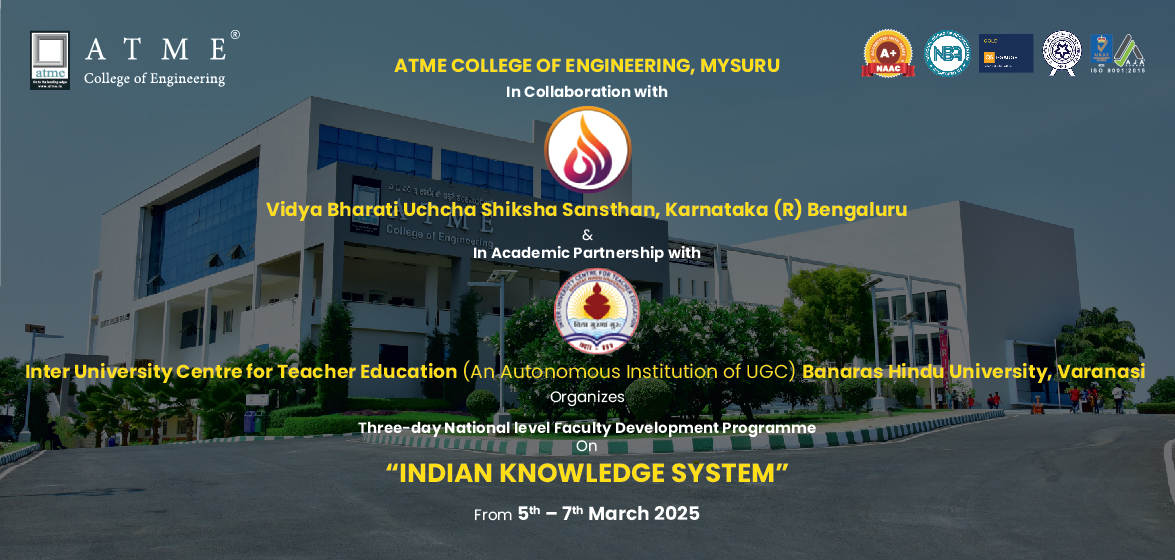REPORT on INDIAN KNOWLEDGE SYSTEM
ATME COLLEGE OF ENGINEERING, MYSURU
In Collaboration with
Vidya Bharati Uchcha Shiksha Sansthan, Karnataka (R) Bengaluru
&
In Academic Partnership with
Inter University Centre for Teacher Education (An Autonomous Institution of UGC) Banaras Hindum University, Varanasi
Organizes
“Three-day National level Faculty Development Programme”
On
“INDIAN KNOWLEDGE SYSTEM”
About Indian Knowledge Systems (IKS)
The National Education Policy (NEP) 2020 emphasizes integrating Indian Knowledge Systems (IKS) into STEM, engineering, and technical education. It promotes multidisciplinary learning, drawing from India’s heritage in science, mathematics, architecture, metallurgy, and sustainability. Engineering & Technical Institutions are incorporating Vedic mathematics, Ayurveda-based biotechnology, and temple architecture into curricula. NEP also encourages research in Sanskrit texts, indigenous technologies, and traditional craftsmanship to foster innovation. By blending modern advancements with India’s intellectual traditions, this approach strengthens STEM education, ensuring a globally competitive, culturally rooted learning ecosystem.
About FDP
Indian Knowledge Systems (IKS) (Bhāratīya-JñānaParampara) encompasses the treasure of knowledge in various disciplines that emerged systematically from the ancient times in India over generations. IKS as a theme and topic of interest has emerged as one of the important components of Contemporary Education. It is one of the “verticals” under NEP-2020 in Higher Education in India. The upside of this is the vast literature (predominantly in vernacular media), practices and artifacts available related to IKS. The downside of this is a diametrically opposite situation concerning IKS as related to the STEM domain. It is here that Engineering and Technical Education has been on the backfoot, Unable to address issues of concern in IKS from a STEM point of view.



